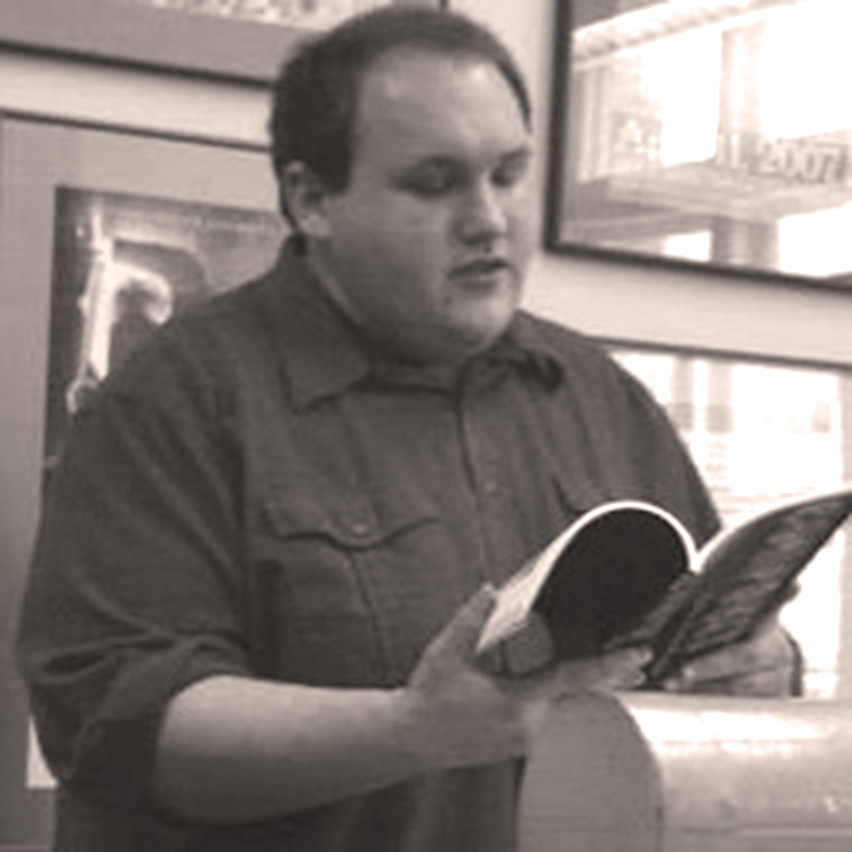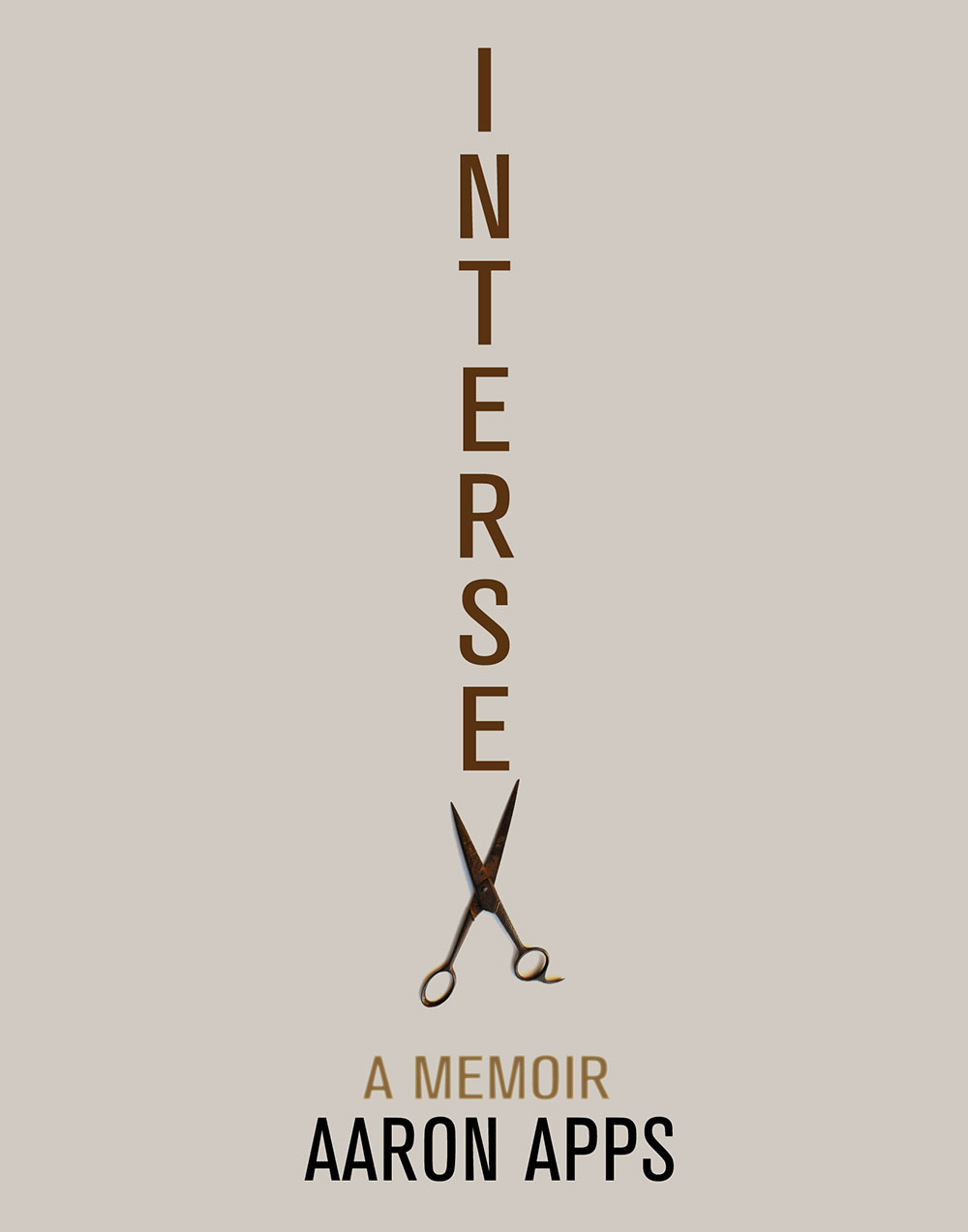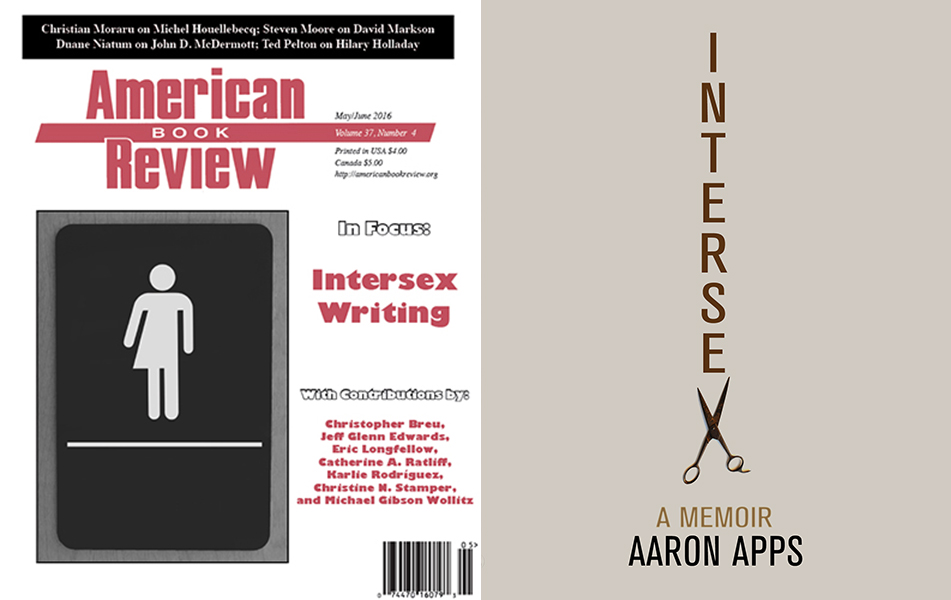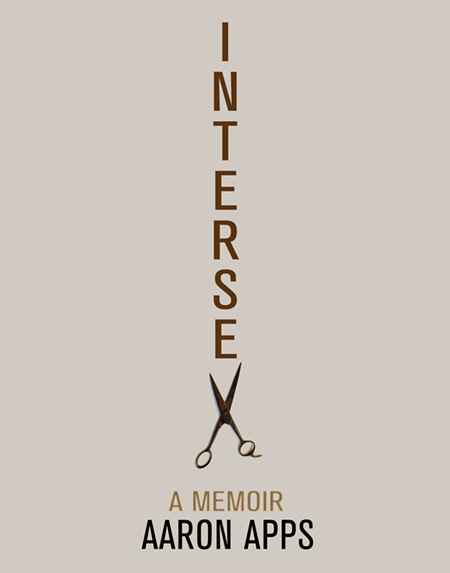
Aaron Apps
Aaron Apps is the author of Intersex (Tarpaulin Sky Press 2015) and Dear Herculine, winner of the 2014 Sawtooth Poetry Prize from Ahsahta Press. He is currently a doctoral student in English Literature at Brown University where he studies poetry and poetics, sexual somatechnics, animacy, hybrid forms, and the history of intersex literature. His writing has appeared in numerous journals, including Pleiades, LIT, Washington Square Review, Puerto del Sol, Columbia Poetry Review, and Blackbird.

Aaron Apps
Aaron Apps is the author of Intersex (Tarpaulin Sky Press 2015) and Dear Herculine, winner of the 2014 Sawtooth Poetry Prize from Ahsahta Press. He is currently a doctoral student in English Literature at Brown University where he studies poetry and poetics, sexual somatechnics, animacy, hybrid forms, and the history of intersex literature. His writing has appeared in numerous journals, including Pleiades, LIT, Washington Square Review, Puerto del Sol, Columbia Poetry Review, and Blackbird.
Intersex
Aaron Apps
Hybrid-Genre / Memoir | Paperback. 88 pages. ISBN-13: 978-1-939460-04-2 | May 2015
A Small Press Distribution Bestseller
Best American Essays 2014, Notable Essay
Nominated for a Pushcart Prize by Carolina Quarterly
More excerpts in Caketrain, Verse, The Doctor T.J. Eckleburg Review, and The Los Angeles Review


Intersex
Aaron Apps
Hybrid-Genre / Memoir | Paperback. 88 pages. ISBN-13: 978-1-939460-04-2 | May 2015
A Small Press Distribution Bestseller
Best American Essays 2014, Notable Essay
Nominated for a Pushcart Prize by Carolina Quarterly
More excerpts in Caketrain, Verse, The Doctor T.J. Eckleburg Review, and The Los Angeles Review
Intersex explores gender as it forms in concrete and unavoidable patterns in the material world. What happens when a child is born with ambiguous genitalia? What happens when a body is normalized? Intersex provides tangled and shifting answers to both of these questions as it questions our ideas of what is natural and normal about gender and personhood. In this hybrid-genre memoir, intersexed author Aaron Apps adopts and upends historical descriptors of hermaphroditic bodies such as “freak of nature,” “hybrid,” “imposter,” “sexual pervert,” and “unfortunate monstrosity” in order to trace his own monstrous sex as it perversely intertwines with gender expectations and medical discourse. Intersex leaves the reader wondering: what does it mean to be human?
A book of time and because of it: “Time stopped queerly.” Not a book but an essay: a “vibration…along lines.” Or the book as “gesture,” intervening with: the other possible, “faintly disembodied” mid-line “trajectories.” Aaron Apps’ Intersex is all feral prominence: a physical archive of the “strange knot.” Thus: necessarily vulnerable, brave and excessive. Book as trait. Book as biology without end: modified, pulsing, visible, measured, folded then folded again: an “animal self.” I felt this book in the middle of my own body. Reading, your own organs stir. In this way, Apps indicates the “creature” that you are too. Where do you “reside”? Where do you “collect”? Like the best kind of memoir, Apps brings a reader close to an experience of life that is both “unattainable” and attentive to “what will emerge from things.” In doing so, he has written a book that bursts from its very frame. (Bhanu Kapil)
A book of time and because of it: “Time stopped queerly.” Not a book but an essay: a “vibration…along lines.” Or the book as “gesture,” intervening with: the other possible, “faintly disembodied” mid-line “trajectories.” Aaron Apps’ Intersex is all feral prominence: a physical archive of the “strange knot.” Thus: necessarily vulnerable, brave and excessive. Book as trait. Book as biology without end: modified, pulsing, visible, measured, folded then folded again: an “animal self.” I felt this book in the middle of my own body. Reading, your own organs stir. In this way, Apps indicates the “creature” that you are too. Where do you “reside”? Where do you “collect”? Like the best kind of memoir, Apps brings a reader close to an experience of life that is both “unattainable” and attentive to “what will emerge from things.” In doing so, he has written a book that bursts from its very frame. (Bhanu Kapil)




